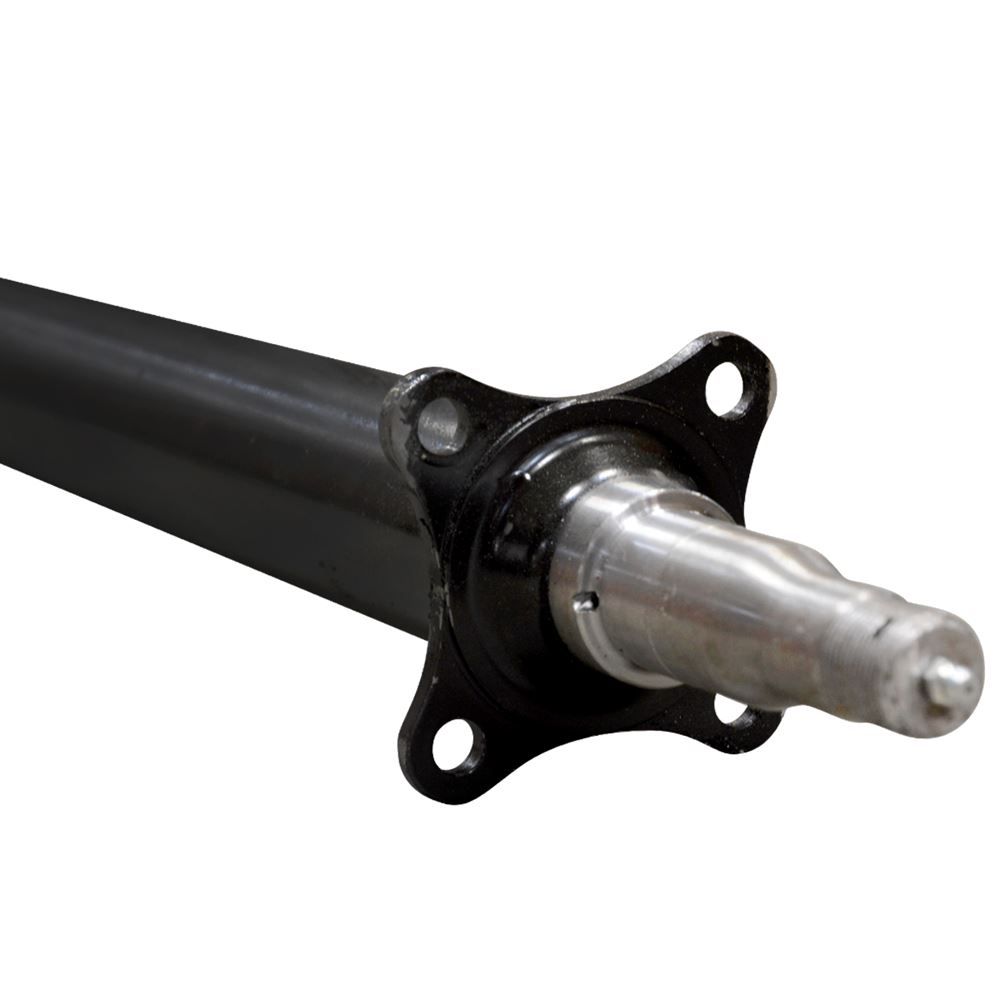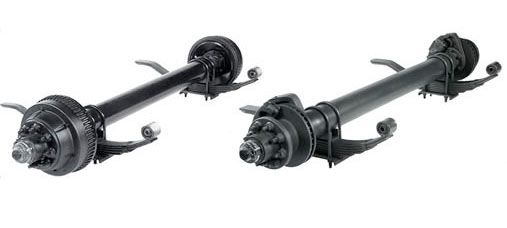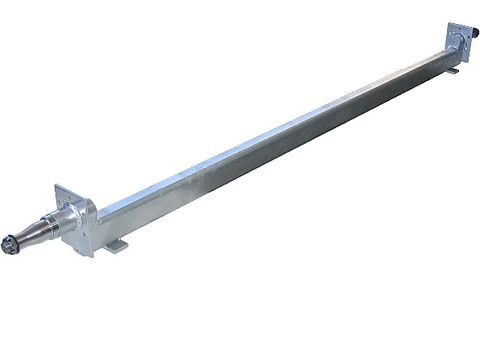Product Description
Products Description
1. Integral high-quality low alloy shaft tube, high load capacity, high bending strength, material: 20 Mn ² Note: Thickness: 13T 12 #, 16T 14 #, 20T 16 #, 25T 18 # Axle tube: thickness 16 #, 18 #, 22 #
2.Lubricating oil protection
3.Bearings use 1 of China’s 3 famous bearings, HangZhou Bearing
4.Brake components interchangeable, S-type camshaft, brake more flexible and reliable, with high-strength wear-resistant ball sets, zero with the assembly, the braking effect is better 5.Products can choose ABS system
|
Model |
Max. Capacity (T) |
Total length (mm) |
Wheel Track (mm) |
Air chamber spacing (mm) |
Axle Tube (mm) |
Brake (mm) |
Studs(mm) |
P.C.D(mm) |
H(mm) |
|
DRGA11L |
11 |
2270 |
1980 |
546 |
127 |
310*190 |
10-M22*1.5 |
225 |
176 |
|
DRGA11L |
11 |
2160 |
1850 |
250 |
127 |
310*190 |
10-M22*1.5 |
225 |
176 |
|
DRGA12L |
12 |
2105 |
1810 |
282 |
127 |
310*190 |
10-M22*1.5 |
225 |
176 |
|
DRGA13L |
13 |
2240 |
1920 |
376 |
127 |
310*200 |
10-M22*1.5 |
225 |
176 |
Quality inspection
Company Profile
ZheJiang Darong Machinery Co., Ltd :
We are located in ZheJiang , China. Founded in 2001, we focus on the R & D and manufacturing of trailer axles. At present, thegroup’s main products include disc axles, drum axles, low plate axles, three-line 6 axle axles, concave axles, eccentric axles,small tonnage trailer axles, semi-finished axles and various types of suspensions, leaf springs, outriggers and traction pins. The cooperative customers are located in more than 50 countries and regions such as Asia, Europe, Latin America, the Middle East, Australia and Africa, helping many customers create higher benefits and values.
Why Choose Us
We have the most advanced production equipment and technology to ensure the quality of trailer axles. There is a very mature axle manufacturing process to produce axles according to the different needs of customers. Each axle is manufactured through more than 10 processes, and finally, the quality inspection procedure of the axle ensures that each axle is a qualified product.
Customer Photos
many customers come to our factory for inspection. Welcome to visit our factory if you have time. You can visit our workshop. Our equipment is a complete set of axle processing equipment. At present, the most advanced automatic assembly process equipment on the market, as well as tools to automatically test the torque of axle bolts, ensure the stability of product quality.
Product packaging
Our Advantages
We have obtained the ISO9001:2015 quality system certification, and are a strong supplier of Alibaba. We have obtained the SGS certification and the ZheJiang high-tech enterprise certification. The company has strong technical research and development strength, and can customize products according to customer needs.
| After-sales Service: | 24h |
|---|---|
| Condition: | New |
| Axle Number: | Customizable |
| Application: | Trailer |
| Certification: | ASTM, CE, DIN, ISO |
| Material: | 20mn2 |
| Samples: |
US$ 460/Piece
1 Piece(Min.Order) | |
|---|
| Customization: |
Available
| Customized Request |
|---|

Can you explain the impact of trailer axle size and construction materials on performance?
The size and construction materials of trailer axles have a substantial impact on the overall performance of a trailer. Here’s how they influence performance:
- Axle Size: The size, particularly the load-carrying capacity, of the axles directly affects the trailer’s ability to transport heavy loads. Larger axles with higher weight ratings can handle greater cargo, improving performance in terms of payload capacity.
- Material Durability: The construction materials of axles, such as steel or aluminum, impact their durability and resistance to corrosion. Steel axles are robust and cost-effective, suitable for various applications. Aluminum axles are lightweight and resistant to rust, making them ideal for marine or corrosive environments.
- Weight Distribution: The size of axles also influences weight distribution. Proper weight distribution across the axles is essential for stability and control. Well-sized axles ensure that weight is evenly spread, enhancing performance during towing.
- Off-Road Performance: In off-road or rough terrain applications, larger axles with sturdy construction are preferred. They offer better ground clearance and durability, ensuring that the trailer can handle uneven surfaces effectively.
- Lightweight Performance: For lightweight trailers, smaller axles or those made of lightweight materials like aluminum can improve fuel efficiency and reduce the overall weight of the trailer. This is crucial for small utility or recreational trailers.
- Cost and Maintenance: The choice of axle size and material impacts the initial cost and long-term maintenance. Steel axles are generally more cost-effective but may require more maintenance to prevent rust. Aluminum axles are initially more expensive but offer long-term cost savings due to their resistance to corrosion.
- Braking and Suspension: Larger axles may accommodate more robust braking systems and advanced suspension, further enhancing performance in terms of safety, control, and ride comfort.
In summary, the size and construction materials of trailer axles are critical factors in determining a trailer’s performance. The right choice depends on the trailer’s intended use, load capacity, and environmental conditions.

Can trailer axles be used in both recreational and commercial trailers?
Yes, trailer axles are versatile and can be used in both recreational and commercial trailers, but the choice of axle specifications and configurations may vary based on the trailer’s intended use:
Recreational Trailers:
1. Utility Trailers: Trailer axles are commonly used in utility trailers designed for personal use. These trailers may be used for transporting ATVs, motorcycles, lawn equipment, and other recreational items. Single or tandem axles are typical choices, depending on the load capacity needed.
2. Boat Trailers: Recreational boat trailers use trailer axles, usually with features like galvanized coatings to resist corrosion in marine environments. Tandem axles or multiple axles may be used to support the weight of larger boats.
3. Camper Trailers: Travel trailers and camper trailers employ trailer axles. These may range from smaller pop-up campers to larger RVs, each with axles suitable for their size and weight requirements.
4. Horse Trailers: Trailers for transporting horses typically use trailer axles with features designed for animal comfort and safety. Axle configurations depend on the number of horses and the trailer’s size.
Commercial Trailers:
1. Cargo Trailers: Commercial cargo trailers use trailer axles to transport goods. These trailers come in various sizes and axle configurations, from single axles for smaller cargo trailers to tandem or multi-axle setups for larger enclosed trailers.
2. Flatbed Trailers: Flatbed trailers for commercial use utilize trailer axles to transport oversized or heavy loads. Axle configurations and load capacities are designed to meet the demands of industrial applications.
3. Dump Trailers: Trailers used for dumping materials, such as construction debris or agricultural products, use trailer axles. These axles are often equipped with heavy-duty features to handle the rigors of frequent dumping.
4. Refrigerated Trailers: Refrigerated or reefer trailers used for transporting temperature-sensitive goods are equipped with trailer axles suitable for the weight and requirements of refrigeration systems.
5. Specialty Trailers: Various specialty trailers, such as car haulers, concession trailers, and equipment trailers, also rely on trailer axles tailored to their specific purposes.
In summary, trailer axles are adaptable and can serve in both recreational and commercial trailer applications. However, it’s essential to select the right axle type, configuration, and specifications to match the trailer’s intended use, load capacity, and environmental conditions.

How do trailer axles contribute to the stability and safety of a trailer?
Trailer axles play a critical role in ensuring the stability and safety of a trailer in various ways:
1. Weight Distribution:
– Trailer axles are strategically positioned to distribute the weight of the trailer and its cargo evenly. Proper weight distribution prevents overloading on one side, reducing the risk of swaying and instability during towing.
2. Load-Bearing Capacity:
– The load-bearing capacity of trailer axles is designed to support the weight of the trailer and its contents. Properly rated axles ensure that the trailer remains stable and doesn’t become overloaded, which can lead to accidents.
3. Handling and Maneuverability:
– The alignment and suspension of trailer axles impact the trailer’s handling and maneuverability. Well-balanced axles and properly adjusted suspension contribute to predictable and safe towing, especially during turns and lane changes.
4. Braking Control:
– Many trailer axles are equipped with braking systems, which enhance the trailer’s braking control. This is crucial for maintaining a safe following distance and preventing rear-end collisions when the towing vehicle brakes.
5. Suspension Systems:
– The suspension system of trailer axles, such as leaf springs or torsion systems, helps absorb shocks and vibrations. This contributes to a smoother ride and reduces the risk of cargo shifting or damage during transit.
6. Tire Stability:
– Trailer axles support the trailer’s tires, ensuring they make even contact with the road surface. This promotes tire stability and longevity, reducing the risk of blowouts or tire-related accidents.
7. Towing Vehicle Compatibility:
– Trailer axles are selected based on the towing vehicle’s capacity. Matching the axle’s capacity to the towing vehicle’s capabilities ensures a safe and stable towing experience.
8. Anti-Sway Mechanisms:
– Some trailer axles incorporate anti-sway mechanisms to reduce trailer sway caused by external factors like wind or uneven road surfaces. These mechanisms enhance safety and control while towing.
9. Compliance with Regulations:
– Trailer axles must meet safety and weight regulations. Ensuring compliance with these standards is crucial for safe and legal trailer operation.
– In summary, trailer axles are integral to the stability and safety of a trailer. Properly maintained and correctly rated axles, along with appropriate suspension and braking systems, are essential for safe towing, preventing accidents, and protecting both the trailer and its cargo.


editor by CX 2023-11-06